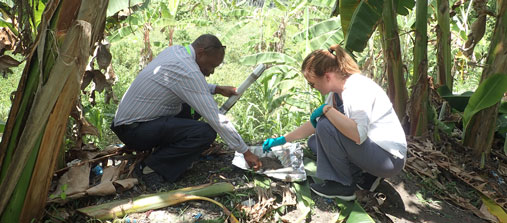Our inter-faculty research group gathers humanities and social science researchers studying toxicity and its origins, distribution and repercussions, aiming to better understand attendant threats and alterations to human and non-human life, and to rethink our ways of knowing, writing, and doing anthropology.
Our group aims to meet for 3-4 sessions every semester. We usually meet for sessions on a Thursday 12-2pm. For each session, we read and discuss 1-3 papers on a specific topic, which we choose jointly as our conversation progresses. The group is open to students interested in environmental anthropology, chemical harm, and toxic substances, globally.

The recent anthropological focus on human-made chemicals in environments and bodies, and attendant toxic threats reflects wider societal concerns with environmental destruction and loss, and irreversible changes to life on our planet; it also recombines fundamental anthropological concerns: from ethics and political economy to landscape and nature, food and consumption to science and technology, kinship and gender to history and temporality - to name a few. It thus offers ample opportunities to bring anthropological thinking to bear upon urgent real-world problems that concern us all.
Our research group links SAI, HELSAM, TIK and OSEH, and the social science, medical and humanities faculties at UiO, and draws in colleagues working in, e.g., the Anthropogenic Soils project, the Epidemic Traces project (both RCN) and the AntheEM programme (NORAD), who study origins, distribution, effects, monitoring, regulation and contestation of toxic substances. We seek to combine social anthropology with perspectives as diverse as environmental history and postcolonial Science and Technology Studies (STS), inter-species ethnography and the political ecology of resource extraction and industrial agriculture, as well as conservation and environmental activism.

